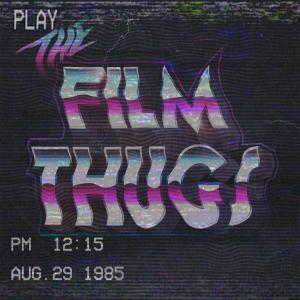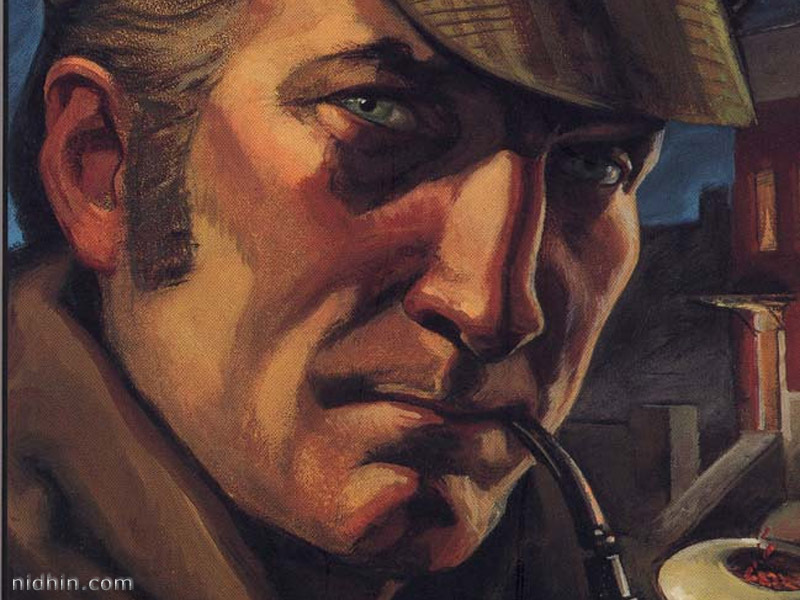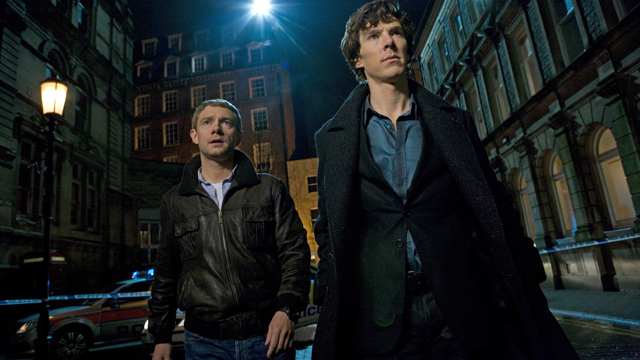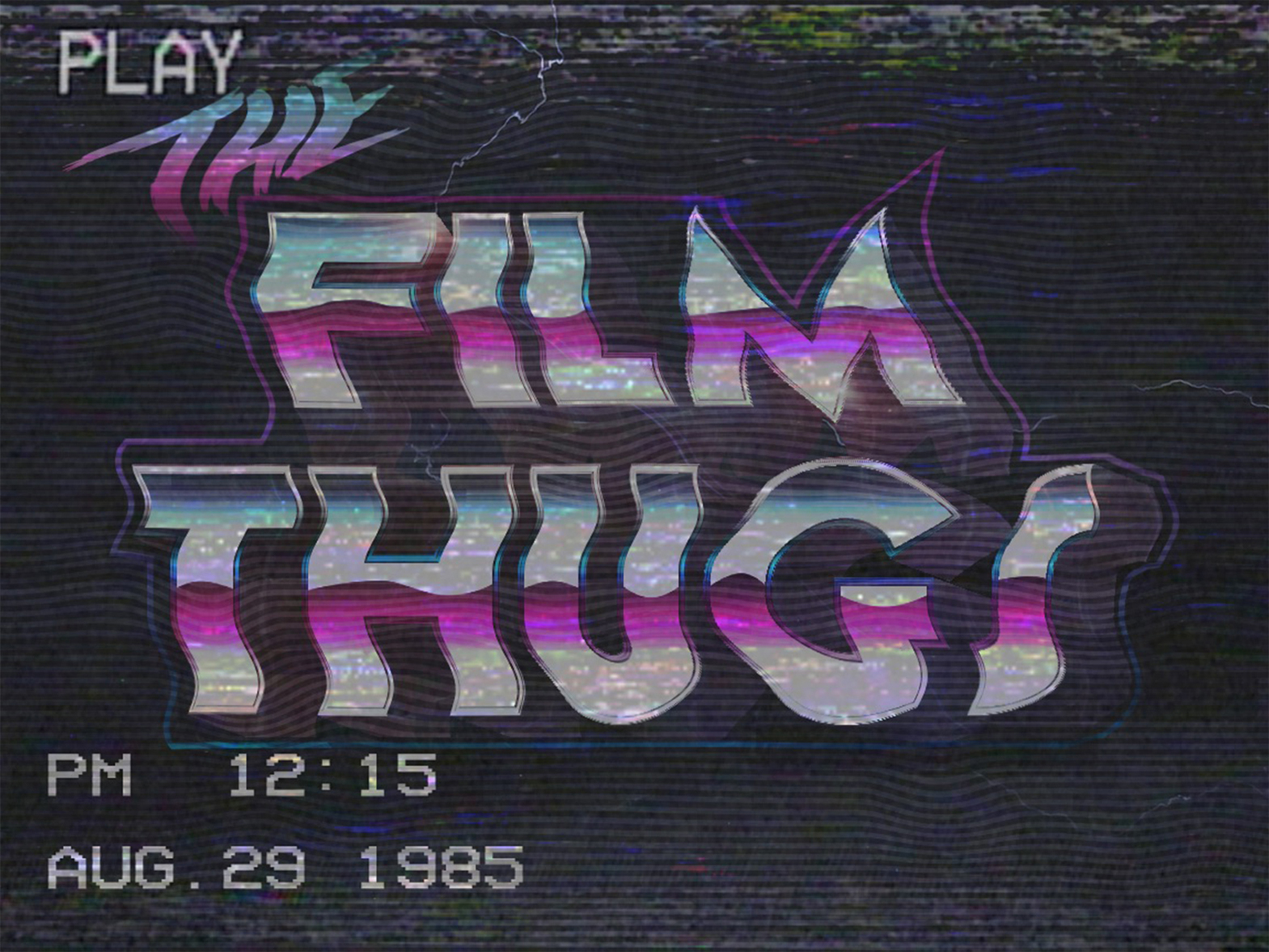Episodes

Thursday Dec 02, 2010
This is how you do it, Mr. Ritchie.
Thursday Dec 02, 2010
Thursday Dec 02, 2010
Iconic characters are a tricky business. Not only do you have obsessive fans with unreasonable expectations waiting to tear whatever new incarnation that comes along to pieces (they pretend to be excited, but really, they want nothing more than something to complain about. Personally I have never understood the fan boys who live to nit pick. I honestly want every new version of a beloved character from my childhood to be great. Wouldn’t it be awesome it would be if every time a sacred cow from our childhood was trotted out it was done in an amazingly original and compelling way?), but you also have a long and involved history that makes originality difficult.
Think about how hard it is to be original without contradicting the existing canon, or repeating something the history of long and varied incarnations, or going so daring as to alienate everyone that loves, likes, or has even heard of the character or story. Too traditional and it’s boring and flat. Too original and it comes off as tacky and obnoxious.
And that is just if we are talking about fairly literal translations. There are also the based on, inspired by, alluded to, suggested by, knock off, parody, and re-imagined/rebooted. The weight of material that exists on some characters is daunting to say the least.
In crime fiction is there any character more iconic than Sherlock Holmes? He is definitely one of the most iconic literary characters in general, but in crime fiction there isn’t any that come close. One could argue Philip Marlow or Sam Spade but more people identify both of those as Humphrey Bogart than would know the actual character name. They represent the noir detective, which is more of an idea than an actual person.

Is there anyone who sees the pipe, the magnifying glass, and the deerstalker cap and doesn’t think Holmes?

There are probably people in the jungle primeval who don’t, but they most likely know someone who does.
Holmes essentially gave birth to the detective genre. He wasn’t the first, Poe beat Doyle on that count, but he is definitely the most distinctive and the prototype for all those who would follow.
There are over 235 entries on IMDB for the character Sherlock Holmes. This number does not include the characters he inspired directly. If you look at those you get a list that includes names like House, Monk, Robert Goren (D’Onofrio’s character on Law and Order: CI), Basil of Baker Street (The Great Mouse Detective), and countless others.
Holmes is an embedded part of our culture.

Recently there have
been two adaptati
ons. I’m not going to say much on the first. Guy Richie made an interesting, flashy film that ultimately felt like a peanut butter sandwich made with the finest peanuts, hand picked in the mountains of China, roasted in a 2000 year old furnace, hand mashed by a monk sitting on top of the highest peak in Tibet, seasoned with Dead Sea salt, combined with jelly made from grapes that are only found in one region of France, hand picked and jellied by a virginal maiden whose beauty is only surpassed by her dedication to making the finest jellies, and placed between two slices of the finest artesian bread available to man. Fancy, yes. But it’s still a peanut butter and jelly sandwich. There is nothing wrong with a peanut butter sandwich, I LOVE peanut butter sandwiches. But I won’t call it anything other than a peanut butter sandwich. Richie did a fine job of sexing the character up, but he didn’t really do much more than that. I enjoyed it, but it really wasn’t what I wanted.
What I wanted was to see a fresh and exciting take on something I already loved, like the first time I had garlic mashed potatoes. I was really looking for that feeling of “Wait!! How is it possible for these to be better?!?!” A lot of people were looking for that, and a lot of people felt disappointed at what they got.
Thankfully the good folks over at the BBC were tuned in enough to let Steven Moffat and Mark Gatiss have a go with their modern day reimagining of the character.
Thus was born “Sherlock.”
How does this version set itself apart?
Well, for starters there is the treatment of the characters. The problem with the Richie version was also the best thing about it. Making Holmes cool and a bit dodgy was an interesting angle that has never really been done before and is not only interesting conceptually, but it works in the context of this world.
However it is a problem because Holmes isn’t cool. His inability to get along with people stems less from a swaggering intellectualism and more from a total inability to understand basic human interactions as anything other than functional. Pleasantries and feelings get in the way. There is a point to every interaction, he gets to it and gets on with things.
This version presents Holmes as a distant genius who essentially is what he does. There isn’t much outside of the chase. His life is efficient and focused. And he realizes this. When called a psychopath he isn’t insulted or offended, but rather annoyed with the mislabeling and corrects it, “I’m a high functioning sociopath.” That sums this character up best. He is completely antisocial, but not amoral. He is as acutely unaware of those around him as he is aware of all the details that make them up. His obsession and solitude could be considered awkward if he were only aware of the feelings of those around him. Holmes is now a technology addicted loner. A brilliant man who gives himself the title “consulting detective” and arrives on the scene when the police are “out of their depth,” his interest is not the money, but the game. He is resented by the police, who openly refer to him as “the freak” and who are certain when they will be day when they are called out on a murder that will be by his hand.
Thankfully they didn’t get rid of the drug use. Although he has replaced his pipe with nicotine patches he still needs that crutch. His other drug use is hinted at by a quick look at Watson during a harassing police “drugs search” intended to get him to open up about a case.
Watson is toughened up a bit in this one as well. He is a former army doctor suffering from PTSD who needs the rush of cases to replace th thrill of combat. He is perplexed by Holmes, but seems to fully understand how amazing he is.
Holmes and Watson’s relationship is interesting because Holmes, who doesn’t so much like as tolerate people, seems to come as close to liking Watson as he is capable. I say this because Holmes doesn’t seem to like as much as tolerate most people.

Oh, and they also bring Mycroft (Sherlock’s older, smarter brother) into it, which makes me very happy.
The casting is also perfect.
Martin Freeman is a fantastic choice to play Watson. He has always had that everyman vibe and that has always been Watson’s role. His performance is solid and he definitely conveys how insane the world he finds himself in is.
This brings us to the absolute stand out. I am not afraid to go out on a limb and say that Benedict Cumberbatch was born to play Holmes. Not only does he have the physical presence and the perfect delivery, he also won the Nobel Prize for “Most British Name Ever.” I know that isn’t really important, but I will say this, “Isn’t it?”



In dealing with something new I am always reluctant to use absolute superlatives. There are a lot of people who use the words “best” and “most recent” as synonyms. While I won’t say that he is the best Holmes ever, I will say that he has the potential to be and it wouldn’t surprise me to see him regarded as such at some point.
He brings a cold intellectualism to the role that has been missing from recent portrayals. I’ve always thought that Holmes was a man who could never really fit in anywhere. How could he. Absolutely everything and everyone is an open book to him. He exits entirely in his head and can’t make sense of anything outside of it. Finally, after hundreds of interpretations, someone decided to show how much his brilliance also makes him a bit of an asshole. This is a fresh and intriguing performance that immediately makes this one of the best adaptations out there.
Now we get to what really sets this show apart, the technical execution. Or all the adaptations nobody has ever attempted to show how Sherlock’s mind works. They’ll give you the facts and the process, but never the inner workings. You never see how the world looks to him.
This show not only does it, but it uses an utterly brilliant and simple device to show it. As he surveys a scene his observations literally appear on the screen, his thought processing and combining details, cataloging what he sees and reaching logical conclusions. For the first time you understand how easy everything comes to him.
This thought process has always been the most fascinating thing about the character, and also the most difficult to capture. The most you ever get is an explanation of how, but it always felt like a trick, some impossible game that you could never play. It’s a subtle change but it makes Homes more accessible than he’s ever been.
Not to say it makes it seem easy or more possible, but the visualization gives you the elusive how. How does he see the world? How does he process and assemble that information? How does he make it look so easy? Finally we have a way to see it.
So far there have only been three episodes. Short seasons can be annoying, but with a show like this I think it’s a blessing. There isn’t enough to make you feel oversaturated or like it’s overstaying it’s welcome. The first is great, the second is a bit weaker, and the third is amazing and has one of the most maddening cliffhangers ever.
If you like detective fiction and especially if you like Sherlock Holmes you owe it to yourself to check this out. This is one of the few truly original and enjoyable treatments of a classic you are likely to see. I cannot recommend it highly enough.


No comments yet. Be the first to say something!